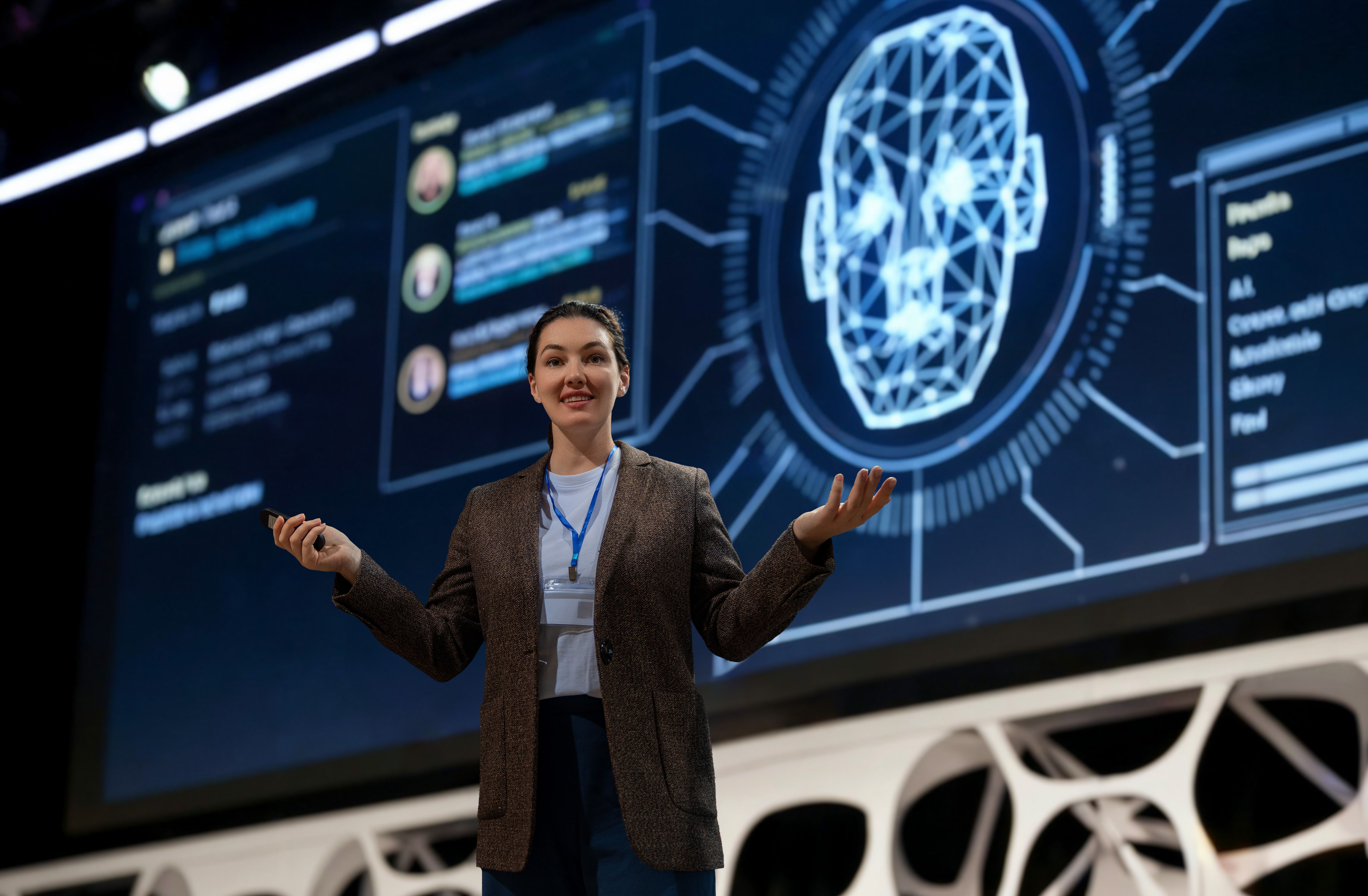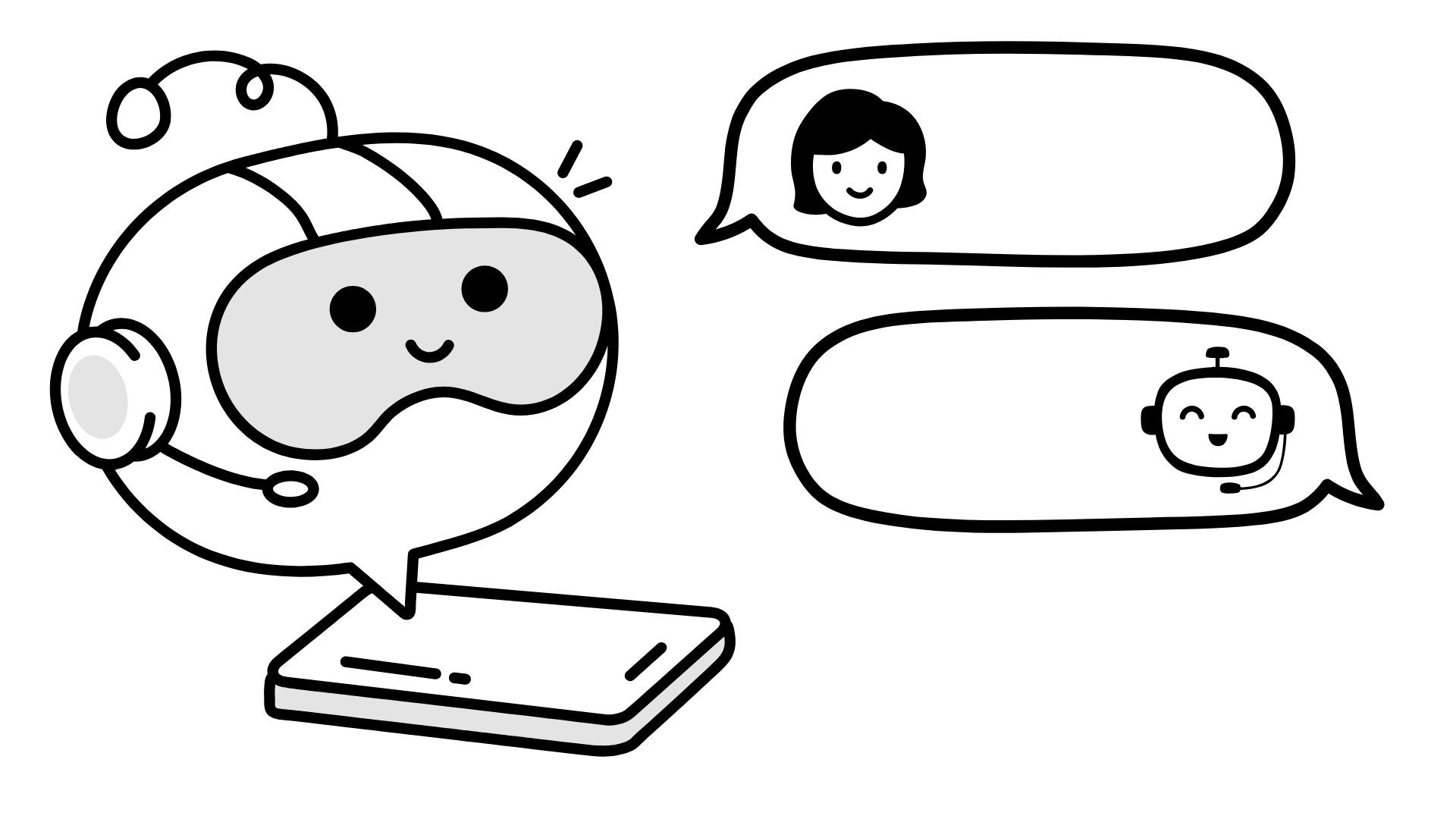AI is now a key part of our daily lives and how companies work. One of the biggest innovations in AI is the AI Agent concept. AI Agents are transforming business operations and enhancing workforce productivity in specific ways, such as automating routine tasks and facilitating smarter decision-making. This helps improve overall efficiency while also boosting employee capabilities. AI Agents improve how businesses interact with both customers and employees.
AI Agents can be seen as digital coworkers, working alongside human employees to handle repetitive or time-consuming tasks. Their role is not just to support the workforce, but also to create opportunities for businesses to operate more strategically and with greater adaptability. These agents bring consistency to processes that were traditionally error-prone and ensure that work gets done quickly, without fatigue or downtime. As more companies adopt AI Agents, we are seeing a shift toward a more technology-augmented workplace where AI and humans collaborate seamlessly.
But what exactly is an AI Agent, and how is it changing business functions like HR and beyond? Let’s take a closer look at AI Agents to understand their potential and how they are being used in business today.
What Are AI Agents?
An AI Agent uses artificial intelligence to interact with its environment, make decisions, and take actions to meet certain goals. It can act like an employee depending on the data provided and the goals set. AI Agents are often designed to function autonomously, which means they can operate with minimal human intervention once they have been programmed and provided with relevant data.
Basically, an AI Agent works in real time—gathering information, analyzing it, and responding to it. This can include adjusting its actions based on changing conditions or learning from past experiences to improve future performance. AI Agents can be software-based, like chatbots and virtual assistants, or they can be autonomous, making decisions based on the data provided. For instance, virtual assistants like Siri or Alexa are examples of AI Agents that interact with humans using voice commands, while more complex AI Agents can be found in systems that manage supply chains or optimize industrial production.
AI Agents use machine learning (ML), natural language processing (NLP), and deep learning to understand what’s going on, predict outcomes, and take actions. They use Large Language Models (LLMs) for conversational actions, which help them understand and generate natural human language, and also Large Action Models (LAMs) for actionable affairs, which help them decide on and carry out tasks in a logical and effective manner. These components work together to enable the AI Agent to understand the context of the information it receives, predict likely outcomes, and then take appropriate actions.
AI Agents in customer service are designed to provide a personalized experience for each customer. By analyzing past interactions and preferences, AI Agents can recommend products or services that are more likely to meet customer needs. They also reduce wait times and improve customer satisfaction by being available 24/7. Businesses benefit by being able to handle a much higher volume of customer interactions without needing to scale up their human workforce proportionately.

AI Agents in Human Resources
Recruitment and Talent Management
AI Agents are also making a big impact in Human Resources, particularly in recruitment. They can screen resumes, conduct initial interviews, and make shortlists of candidates. This helps HR teams process applications faster and reduces the workload involved in hiring.
AI-driven HR agents also help reduce bias by focusing on data rather than human intuition, making hiring more fair and efficient. By using objective criteria for evaluation, AI Agents can ensure that decisions are based on skills and experience rather than unconscious bias. Plus, AI Agents can analyze employee data to find skill gaps, help employees move into new roles, and suggest jobs that match an employee's skills and interests.
Employee Experience and Engagement
Beyond hiring, AI Agents improve the employee experience by acting as virtual HR assistants. They answer questions about benefits, leave policies, and payroll issues, reducing the workload for HR staff. This means HR personnel can focus on more strategic areas, like improving workplace culture or addressing employee concerns.
AI Agents also analyze employee feedback, communication patterns, and survey responses to measure engagement. With this information, HR teams can take action to improve morale and productivity. AI Agents can even offer personalized career development advice, making employees feel more supported in their growth. This creates a more engaged and motivated workforce, where employees feel that they have clear opportunities for career advancement.
Conclusion
In conclusion, preparing your business for effective AI agent integration means focusing on two core aspects: data consolidation and customizability. When selecting a platform, businesses must prioritize environments that eliminate data silos, ensuring that all information is accessible and unified for AI agents to draw meaningful insights. A fragmented data landscape significantly limits the potential of even the most sophisticated AI, preventing it from making informed decisions that truly support business functions.
Additionally, the chosen platform should offer flexibility and adaptability, allowing AI agents to be customized for specific departmental needs. A one-size-fits-all approach rarely works for different areas of a business, such as HR, Sales, or Customer Service, each of which has unique processes and challenges. A platform that allows for easy customization ensures that AI agents are not only operational but also highly effective in supporting distinct business goals.
With CloudOffix, companies can achieve both goals: leveraging an environment where data is already consolidated and integrated, and utilizing tools like the AI Builder to shape AI agents that perfectly align with each department’s needs. This means faster implementation, lower costs, and the ability to focus immediately on reaping the benefits of AI—enhanced productivity, better decision-making, and improved customer experiences.
When choosing a platform for your AI journey, consider one that supports consolidated data, seamless integration, and customizable AI capabilities. By doing so, you create a digital ecosystem that is ready to maximize the potential of AI agents, ultimately driving smarter, more agile business operations.

